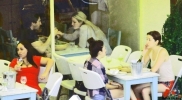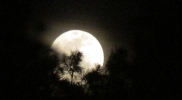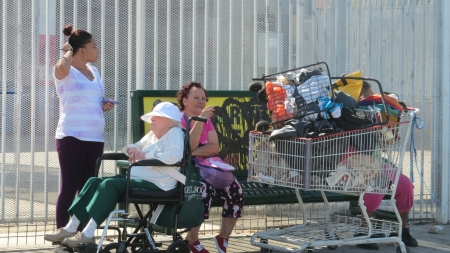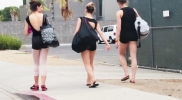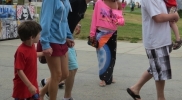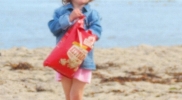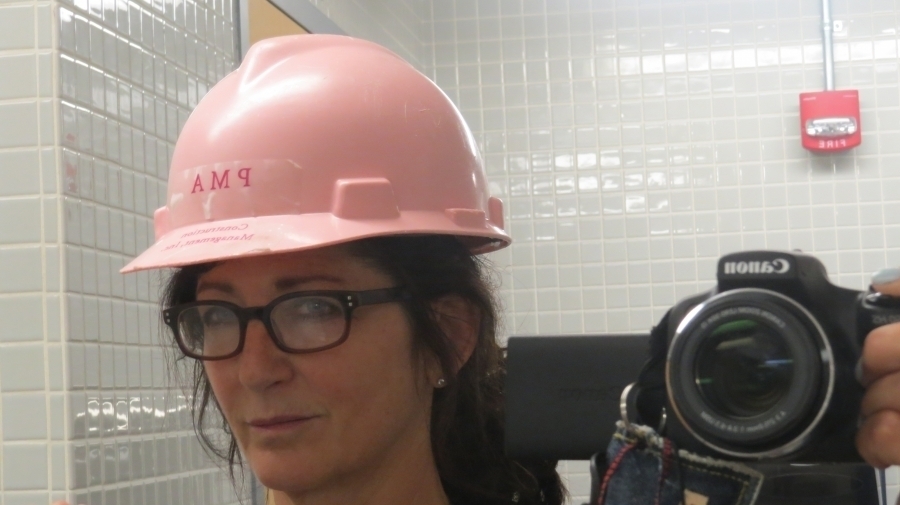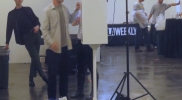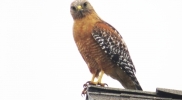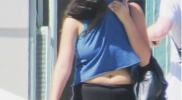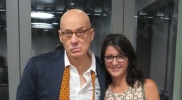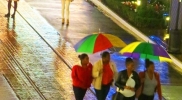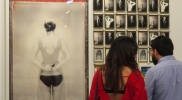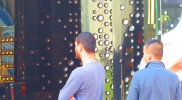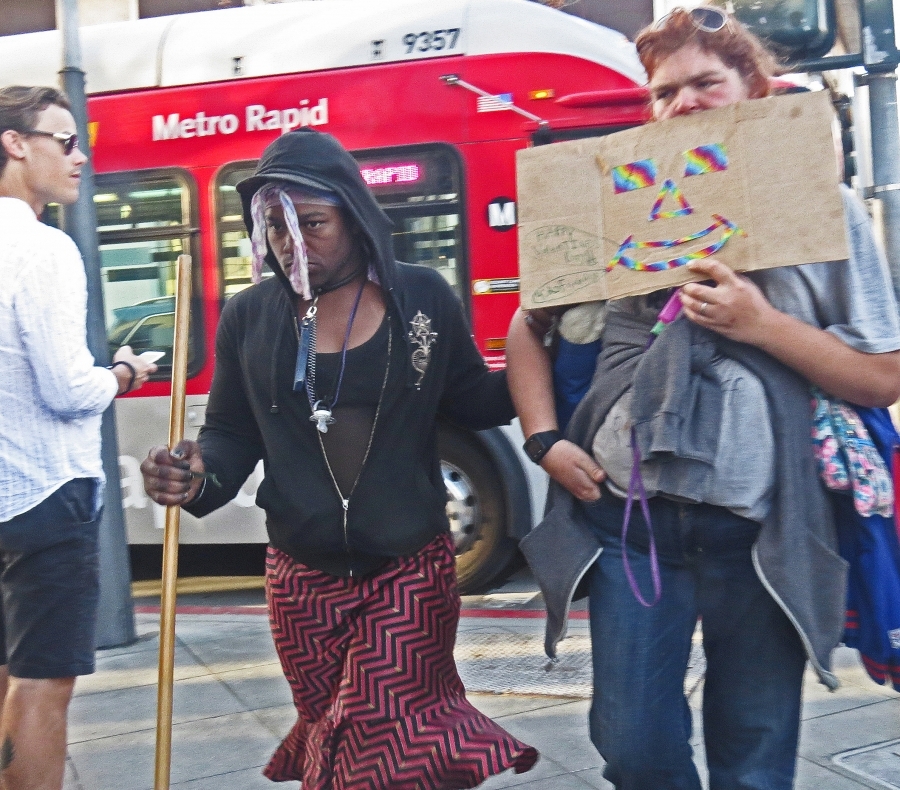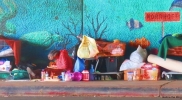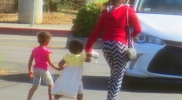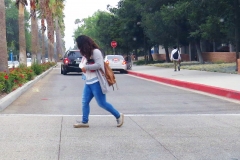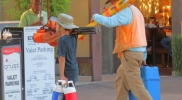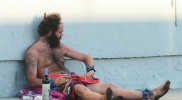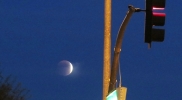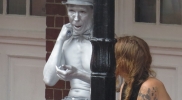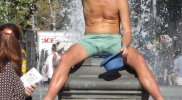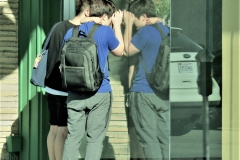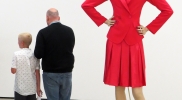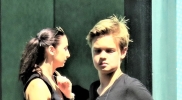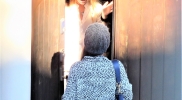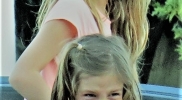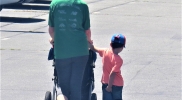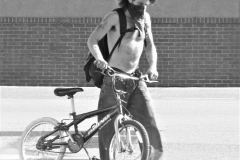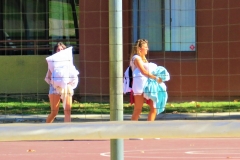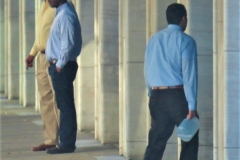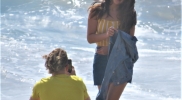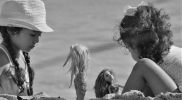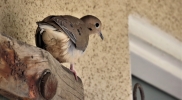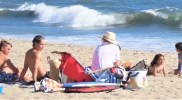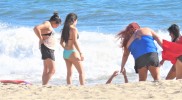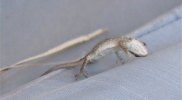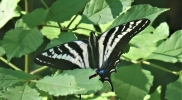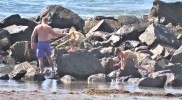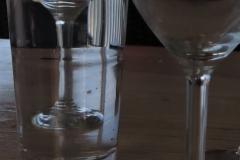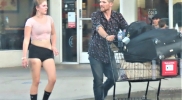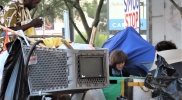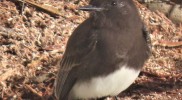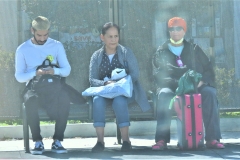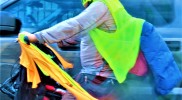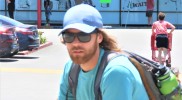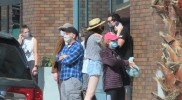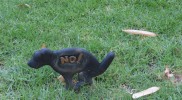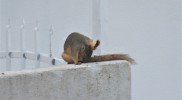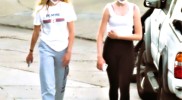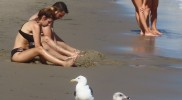|
|
Best Poem - Angst
Best Poems – DISASTERS
|
| |
| Some Verses upon the Burning of Our House, July 10th, 1666 – Anne Bradstreet
“In silent night when rest I took,
For sorrow near I did not look,
I waken’d was with thundring nois
And piteous shrieks of dreadful voice.
That fearful sound of fire and fire,
Let no man know is my Desire.
I, starting up, the light did spye,
And to my God my heart did cry
To straighten me in my Distresse,
And not to leave me succourlesse.
Then, coming out behold a space
The flame consume my dwelling place.
And when I could no longer look,
I blest his Name that gave and took,
That layd my goods now in the dust:
Yea so it was, and so ‘twas just.
It was his own: it was not mine;
Far be it that I should repine.
He might of all justly bereft,
But yet sufficient for us left.
When by the ruines oft I past
My sorrowing eye aside did cast,
And here and there the places spye
Where oft I sate and long did lye.
Here stood that Trunk, and there that chest,
There lay that store I counted best.
My pleasant things in ashes lye,
And them behold no more shall I.
Under thy roof no guest shall sitt,
Nor at thy Table eat a bitt.
No pleasant tale shall ‘ere be told,
Nor things recounted done of old.
No Candle ‘ere shall shine in Thee,
Nor bridegroom‘s voice ‘ere heard shall bee.
In silence ever shalt thou lye,
Adieu, Adieu; All’s vanity.
Then streight I ‘gin my heart to chide,
And did thy wealth on earth abide?
Didst fix thy hope on mouldring dust,
The arm of flesh didst make thy trust?
Raise up thy thoughts above the skye
That dunghill mists away may flie.
Thou hast a house on high erect,
Frame’d by that mighty Architect,
With glory richly furnished,
Stands permanent though this bee fled.
It‘s purchased, and paid for too
By Him who hath enough to doe.
A Price so vast as is unknown,
Yet by his Gift is made thine own.
Ther‘s wealth enough, I need no more;
Farewell, my Pelf, farewell, my Store.
The world no longer let me Love,
My hope and Treasure lyes Above.”
|
| |
When The Towers Fell – Galway Kinnell
(from The New Yorker; revised in Best American Poetry, 2003)
“From our high window we saw the towers
with their bands and blocks of light
brighten against a fading sunset,
saw them at any hour glitter and live
as if the spirits inside them sat up all night
calculating profit and loss, saw them reach up
and steep their tops in the first yellow
of sunrise, grew so used to them
often we didn’t see them, and now,
not seeing them, we see them.
The banker is talking to London.
Humberto is delivering breakfast sandwiches.
The trader is already working the phone.
The mail sorter has started sorting the mail.
. . . povres et riches
Sages et folz, prestres et laiz
Nobles, villains, larges et chiches
Petiz et grans et beaulx et laiz . . .
The plane screamed low down lower Fifth Avenue,
lifted at the Arch, someone said, shaking the dog walkers
in Washington Square Park, drove for the north tower,
struck with a heavy thud, released a huge bright gush
of blackened fire, and vanished, leaving a hole
the size and shape a cartoon plane might make
if it had passed harmlessly through and were flying away now,
on the far side, back into the realm of the imaginary.
Some with torn clothing, some bloodied,
some limping at top speed like children in a three-legged race,
some half dragged,
some intact in neat suits and dresses,
they walk in silence up the avenues,
all dusted to a ghostly whiteness,
all but their eyes, which are rubbed red as the eyes of a Zahoris,
who can see the dead under the ground.
Some died while calling home to say they were O.K.
Some died after over an hour spent learning they would die.
Some died so abruptly they may have seen death from within it.
Some broke windows and leaned out and waited for rescue.
Some were asphyxiated.
Some burned, their very faces caught fire.
Some fell, letting gravity speed them through their long moment.
Some leapt hand in hand, the elasticity in their last bits of love
time letting—I wish I could say—their vertical streaks down
the sky happen more lightly.
At the high window, where I’ve often stood
to escape a nightmare, I meet
the single, unblinking eye
that lights the all-night lifting
and sifting for bodies, for pieces of bodies,
for anything that is not nothing,
in the search that always goes on
somewhere, now in New York and Kabul.
On a street corner she holds up a picture—
of a man who is smiling. In the gray air
of today few pass. Sorry sorry sorry.
She startles. Suppose, down the street, that headlong lope . . .
Or over there, that hair so black it’s purple . . .
And yet, suppose some evening I forgot
The fare and transfer, yet got by that way
Without recall,—lost yet poised in traffic.
Then I might find your eyes . . .
It could happen. Sorry sorry good luck thank you.
On this side it is ‘amnesia’—forgetting the way home—;
on the other, ‘invisibleness’—never entirely returning.
Hard to see clearly in the metallic mist,
or through the sheet of supposed reality
cast over our world, bourne that no creature born
pokes its way back through, and no love can tear.
The towers burn and fall, burn and fall—
in a distant shot, smokestacks spewing oily earth remnants
Schwarze Milch der Frühe wir trinken sie abends
wir trinken sie mittags und morgens wir trinken sie nachts
wir trinken und trinken
Here is not a comparison but a corollary,
not a likeness but a common lineage
in the twentieth-century history of violent death—
black men in the South castrated and hanged from trees,
soldiers advancing in mud at 90,000 dead per mile,
train upon train headed eastward of boxcars shoved full to the
corners with Jews and Gypsies to be enslaved or gassed,
state murder of twenty, thirty, forty million of its own,
atomic blasts wiping cities off the earth, fire bombings the same,
death marches, starvations, assassinations, disappearances,
entire countries turned into rubble, minefields, mass graves.
Seeing the towers vomit these omens, that the last century
dumped into this one, for us to dispose of, we know
they are our futures, that is our own black milk
crossing the sky: wir schaufeln ein Grab in den Lüften da
liegt man nicht eng
Burst jet fuel, incinerated aluminum, steel fume, volatized
marble, exploded granite, pulverized wallboard, berserked
plastic, mashed concrete, gasified mercury, scoria, vapor
of the vaporized—draped over our island up to streets regimented
into numbers and letters,
breathed across the great bridges to Brooklyn and the waiting
sea:
astringent, sticky, miasmic, empyreumatic,
air too foul to take in, but we take it in,
too gruesome for seekers of lost beloveds
to breathe, but they breathe it and you breathe it.
A photograph of a woman hangs
from his neck. He doesn’t look up.
He stares down at the sidewalk of flagstone slabs
laid down in Whitman’s century, gutter edges
iron wheels rasped long ago to a melted roundedness:
conscious mind envying the stones.
Nie stają się, są.
Nic nad to, myślałem,
zbrzydziwszy sobie
wszystko co staje się
And I sat down by the waters of the Hudson,
by the North Cove Yacht Harbor, and thought
of what those on the high floors must have suffered: knowing
they would burn alive, and then, burning alive.
Could there be a mechanism of death
so mutilating to existence, that no one
gets over it ever, not even the dead?
And then I saw before me, in steel letters welded
to the steel railing posts, Walt Whitman’s words
written when America plunged into war with itself:
City of the world! . . .
Proud and passionate city—mettlesome, mad, extravagant city!
Words of a time of illusions. And then I remembered
others of his words after the war was over and Lincoln dead:
I saw the debris and debris of all the slain soldiers of the war,
But I saw they were not as was thought,
They themselves were fully at rest—they suffer’d not,
The living remain’d and suffer’d, the mother suffer’d,
And the wife and the child and the musing comrade suffer’d . . .
In our minds the glassy blocks
succumb over and over into themselves,
slam down floor by floor into themselves.
They blow up as if in reverse, explode
downward and outward, billowing
through the streets, engulfing the fleeing.
Each tower as it falls concentrates
into itself, as if transforming itself
infinitely slowly into a black hole
infinitesimally small: mass
without space, where each light,
each life, put out, lies down within us.”
|
The Falling Man – Tala Abu Rahmeh
(and every person who jumped from the twin towers as they fell to the ground) “You walk, like an open wound, your heart peeking from the skin, swallowing the pain of the city. He is in every curve of your face. As life becomes ordinary for passersby you want to scream, ‘I am his mother. I am his mother and he died and I saw him twirl and curl into a thud. I am his mother and I know all of his limbs, the scars, the edges of his knees and heart and I saw him twirl and curl into a thud. I am his mother and I feel bits of him left in my uterus, they pinch me from the inside when I’m about to forget and I saw him twirl and curl into a thud. I am his mother and I kissed his eyelashes when he told me he wanted to be ordinary and I saw him twirl and curl into a thud. I am his mother and I know how his eyes tighten and fingers bend when he laughs and I saw him twirl and curl into a thud. I am his mother and I taught him how to love with reservation so not to get his heart broken but he never listened and I saw him twirl and curl into a thud. I am his mother and I know that when he eats he chews slowly to protect his teeth from decay and I saw him twirl and curl into a thud. I am his mother and I watched him cross the street for the first time and I saw him twirl and curl into a thud. I am his mother and when I dream of him I see him standing. |
The Dance – Siamanto (trans. by Peter Balakian and Nevart Yaghlian)“In the town of Bardez where Armenians
were still dying,
a German woman, trying not to cry
told me the horror she witnessed:
‘This incomprehensible thing I’m telling you about,
I saw with my own eyes,
Behind my window of hell
I clenched my teeth
and watched with my pitiless eyes:
the town on Bardez turned
into a heap of ashes.
Corpses piled high as trees.
From the waters, from the springs,
from the streams and the road,
the stubborn murmur of your blood
still revenges in my ear.
Don’t be afraid. I must tell you what I saw,
so people will understand
the crimes men do to men.
For two days, by the road to the graveyard. . .
Let the hearts of the world understand,
It was Sunday morning,
the first useless Sunday dawning on the corpses.
From dusk to dawn in my room,
with a stabbed woman,
my tears wetting her death.
Suddenly I heard from afar
a dark crowd standing in a vineyard
lashing twenty brides
and singing dirty songs.
Leaving the half-dead girl on the straw mattress,
I went to the balcony on my window
and the crowd seemed to thicken like a clump of trees
An animal of a man shouted, ‘You must dance,
dance when our drum beats.’
With fury whips cracked
on the flesh of these women.
Hand in hand the brides began their circle dance.
Now, I envied my wounded neighbor
because with a calm snore
she cursed the universe
and gave her soul up to the stars. . .
In vain I shook my fists at the crowd.
‘Dance,’ they raved,
‘dance till you die, infidel beauties.
With your flapping tits, dance!
Smile for us.
You’re abandoned now, you’re naked slaves,
so dance like a bunch of fuckin’ sluts.
We’re hot for you all.’
Twenty graceful brides collapsed.
‘Get up,’ the crowd roared,
brandishing their swords.
Then someone brought a jug of kerosene.
Human justice, I spit in your face.
The brides were anointed.
‘Dance,’ they thundered—
‘here’s a fragrance you can’t get in Arabia.’
With a torch, they set
the naked brides on fire.
And the charred bodies rolled
and tumbled to their deaths. . .
I slammed the shutters
of my windows,
and went over to the dead girl
and asked: ‘How can I dig out my eyes?'” |

Comments are closed.
|
|
